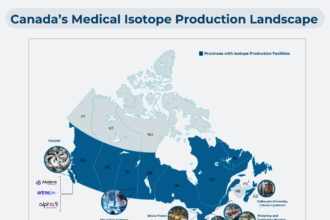As artificial intelligence rapidly transforms Canada’s job market, young people seeking to establish careers face an unprecedented challenge: the very entry-level positions that traditionally served as stepping stones are increasingly being automated. A concerning trend is emerging across major urban centers from Vancouver to Halifax, where new graduates are discovering that their carefully acquired degrees may no longer guarantee the career entry points they once did.
“I spent four years getting my business degree, only to find that many of the analyst positions I qualified for are now being handled by AI systems,” says Morgan Chen, 24, a recent graduate from Ryerson University. “Companies want experience, but how do you get experience when the starter jobs are disappearing?”
According to a recent study by the Canadian Centre for Policy Alternatives, approximately 42% of entry-level administrative, data analysis, and customer service roles—traditionally the domain of new workforce entrants—could be significantly disrupted or eliminated by AI technologies within the next three years. These positions have historically been crucial for young professionals to develop workplace competencies, establish professional networks, and build resumes.
The impact extends beyond just job scarcity. At CO24 Business, our reporting has found that the nature of remaining entry-level positions is rapidly evolving, requiring technical skills that many educational programs haven’t yet incorporated. While universities across Canada are scrambling to update curricula, many recent and soon-to-be graduates find themselves caught in a difficult transition period.
“We’re seeing a fundamental shift in how careers begin,” explains Dr. Elaine Thompson, labor economist at the University of British Columbia. “The traditional career ladder is being redesigned. Some rungs are disappearing while others require different skills to access. Young people are essentially being asked to jump higher to reach the first step.”
The federal government has recognized this emerging crisis. Last month, Innovation Minister Jonathan Reynolds announced a $240 million initiative to create AI-resistant job opportunities for young Canadians and develop training programs specifically targeting the skills gap. However, critics including opposition members in CO24 Politics coverage question whether these measures will be implemented quickly enough to help those entering the workforce now.
Some industries show promising approaches to this challenge. The healthcare sector, facing chronic staffing shortages, has begun creating “AI-augmented” roles where human workers collaborate with AI systems rather than being replaced by them. Similarly, creative industries are developing new position categories that leverage uniquely human capabilities alongside technological tools.
“The most forward-thinking companies aren’t simply automating jobs away,” notes Thomas Mackenzie, director of talent acquisition at Toronto-based tech firm NorthStar Digital. “They’re redefining roles to capitalize on the complementary strengths of human creativity and AI processing power. This creates different—but still valuable—entry points.”
For young Canadians themselves, adaptation has become essential. Many are pursuing specialized technical certifications alongside traditional degrees, while others are focusing on developing distinctly human skills in leadership, creativity, and interpersonal communication that remain difficult to automate.
“I realized I needed to differentiate myself,” explains Sophia Patel, who recently secured an entry-level position at a marketing firm after six months of searching. “I took extra courses in prompt engineering and AI ethics, which helped me position myself as someone who could work alongside these new technologies rather than compete with them.”
As artificial intelligence continues its advance through Canada’s economic landscape, the question remains: will we create an employment ecosystem that integrates young workers alongside new technologies, or will an entire generation find themselves locked out of meaningful career progression? The answer may well determine not just individual prospects, but Canada’s future economic competitiveness in the global knowledge economy.







